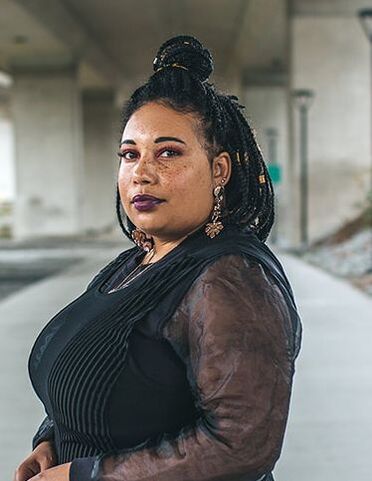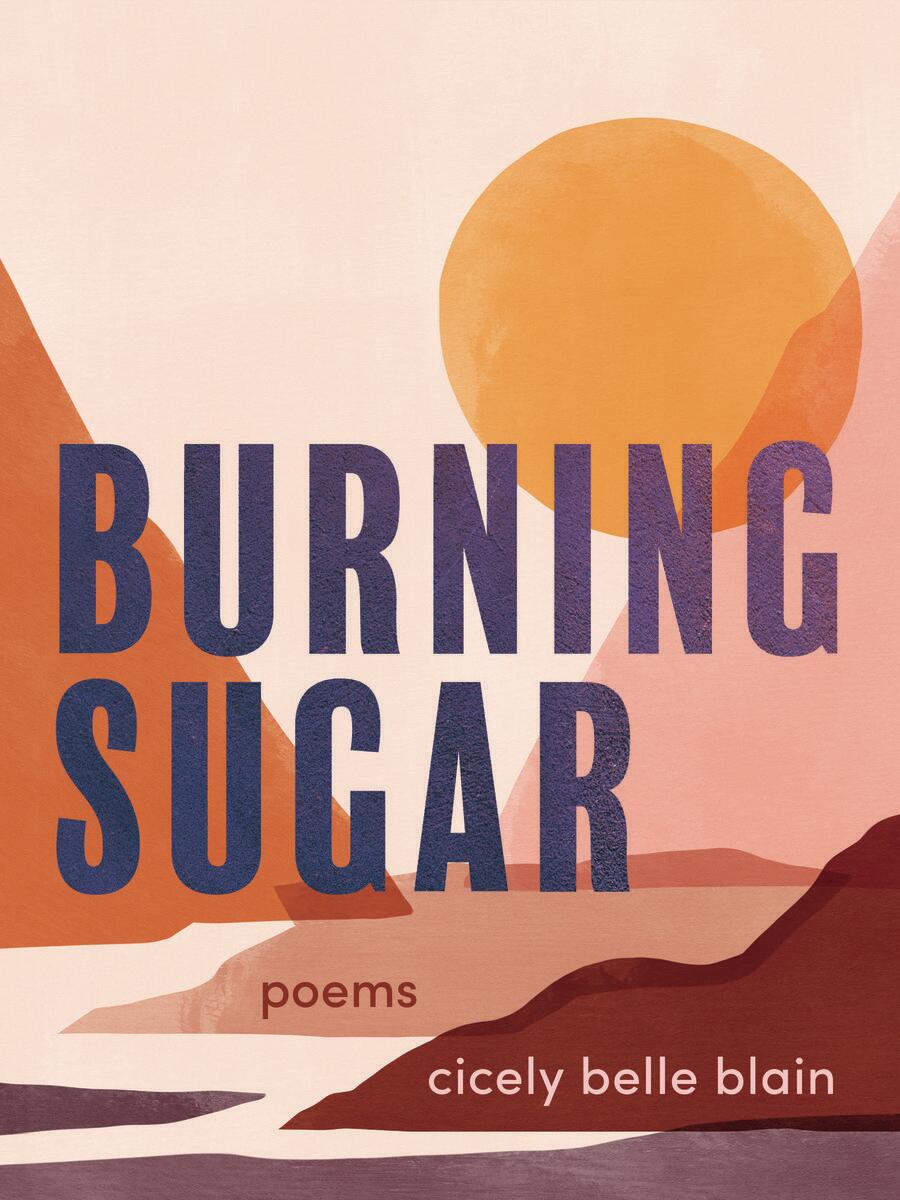The Assay Interview Project: Cicely Belle Blain
January 18, 2021
|
Cicely Belle Blain is a Black/mixed, queer femme from London, UK now living on the lands of the Musqueam, Squamish and Tsleil-Waututh people. Their ancestry is a mix of Gambian (Wolof), Jamaican and English. At the heart of all their work, Cicely Belle harnesses their passion for justice, liberation and meaningful change via transformative education, always with laughter, and fearlessly in the face of systemic oppression.
They are noted for founding Black Lives Matter Vancouver and subsequently being listed as one Vancouver’s 50 most powerful people, BC Business’s 30 under 30 and one of 150 Black women and non-binary people making change across Canada. They are now the CEO of Cicely Blain Consulting, social justice-informed diversity and inclusion consulting company with over 200 clients across North America, Europe, Asia and Africa. Cicely Belle is an instructor in Executive Leadership at Simon Fraser University and the author of Burning Sugar (Arsenal Pulp Press, 2020). |
|
About Burning Sugar: In this incendiary debut collection, activist and poet Cicely Belle Blain intimately revisits familiar spaces in geography, in the arts, and in personal history to expose the legacy of colonization and its impact on Black bodies. They use poetry and essay to illuminate their activist work: exposing racism, especially anti-Blackness, and helping people see the connections between history and systemic oppression that show up in every human interaction, space, and community. Burning Sugar demonstrates how the world is both beautiful and cruel, a truth that inspires overwhelming anger and awe–all of which spills out onto the page to tell the story of a challenging, complex, nuanced, and joyful life.
In Burning Sugar, verse and epistolary, racism and resilience, pain and precarity are flawlessly sewn together by the mighty hands of a Black, queer femme. AnnElise Hatjakes: Many of the pieces in Burning Sugar pose questions about our relationship to place—how we move through it, who has the power to move freely, and what are the generational consequences of places being stolen. Can you discuss how (or whether) your approach to place differs depending on the genre you are writing in?
Cicely Belle Blain: Yes and no. I choose to write in prose when I want to be informative and educational with my work. When reflecting on a place, especially its deep history of both violence and celebration, poetry is the first form that comes to mind. I can be evocative and ekphrastic to illustrate the indescribable. For example, Toronto is written as an essay because it felt like so much more than just one visit – it’s several years of activism, emotion, struggle and joy. I wanted there to be no mistaking my perspective or any meaning to get lost behind metaphor. To me, one of the central concerns of this book is the relationship between individual and collective experiences. Images of marginalized groups like those participating in the vigil in “Black Men Don’t Ride Horses” and those demonstrating at Toronto Pride in “Toronto” are in conversation with the speaker’s personal accounts in the section titled “Child.” Can you describe the process that informed how you put these wide-ranging experiences of the personal and the collective in conversation with each other? I wanted the book to be a journey – this is how I approach a lot of my work. I want people to move through time and space, visually and emotionally understanding history and geography and oppression. I am deeply informed by my ancestors’ experiences and journeys and this is something that connects me to so many more people beyond my immediate family or network. Black folks in particular are connected by a history of intergenerational trauma – we do not necessarily share a language, a culture, an experience but anti-Blackness throughout history, particularly slavery and colonization connect us all in some way. I want readers, especially young Black queer people to feel they are not alone, to feel a sense of connection whether that be through the collective or more individual pieces. While most of the pieces in Burning Sugar are heartbreaking, with unflinching examinations of issues like police brutality, personal grief, generational trauma, and the murder of trans women, there are also some lighthearted moments of respite. For example, the tonal shift in “Peachland” felt humorous, as did the small act of rebellion that took the form of intentionally ripping Lululemon pants in “Toronto.” Could you describe how you think about humor in your writing? Humour for me is deeply connected to joy and joy is a form of resistance. In this world, those in the margins are not meant to experience freedom, joy, luxury, or rest, and humour does those things for me, and therefore I hope for others too. I am a type 7 (for any of those who like the Enneagram personality test) and a Sagittarius so a lot of my life is centred around creating experiences for myself and others that are full of entertainment. I love a really good movie, a great meal, playing board games, splashing in the water, doing escape rooms, bowling and so many more things – I enjoy creating a life for myself that is rooted in joy and wonder. And by default, I hope to create that for my friends and community too. I think often activists are pigeonholed into only talking about oppression but sometimes the fact that I am funny is actually what opens people's minds to my experience and my anti-racist teachings. When I sit in boardrooms with middle aged white men we are separated by so much time and power and difference but one joke can, for a brief moment, shift that. The book has a propulsive quality, which I think is partly attributable to the movement both within pieces and the movement from one piece to the next. Can you speak to the movement between and within pieces in this collection? It was important for me for the work to flow, for people to feel like they were moving both forward and backward and all over the place within time and space. I kind of wanted people to buckle in for the ride. A lot of people have told me they read the book (or most of it) in one sitting which I think is really powerful because you can truly experience the movement, the ups and downs, the vibrations. If you could choose one piece of writing that was required reading for every single person, what would it be? It’s so hard to choose! My answer would probably be different at a different point in my life but at the moment I would say Girl, Woman, Other by Bernadine Evaristo. I think it is such a powerful and poignant exploration into the experiences of Black British women and non-binary people. I have so much appreciation for fiction writers who are able tell stories and also paint pictures and also teach lessons all at once. It’s a beautiful skill. While I am good at educating people through my anti-racism consulting, that can only go so far, I think people also need to experience art that moves them to have empathy for others. A native Nevadan, AnnElise Hatjakes holds an MFA degree in fiction and a master’s degree in writing from the University of Nevada, Reno. One of her stories was shortlisted for the Neil Shepard Prize in Fiction. Her work has also appeared in journals including Juked, Tahoma Literary Review, and Typehouse, among others. She is currently completing revisions on her novel while pursuing a PhD in creative writing at the University of Missouri as a Francis Fellow
For Further Reading |

